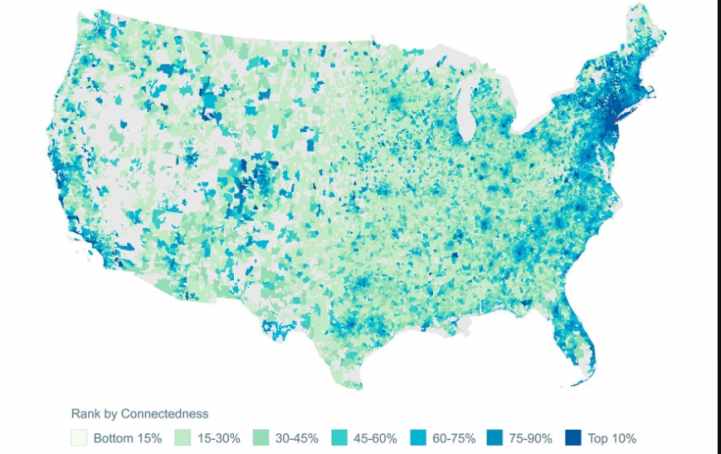Facebook launches Data for Good program, new tools to help health researchers track COVID-19 to see if social distancing is working

Social giant Facebook announced today it is launching new tools that use anonymized location data collected from users to show whether people are adhering to social distancing measures designed to stop the spread of the COVID-19 coronavirus. Facebook said its Data for Good program offers maps on population movement that researchers and nonprofits are already using to understand the coronavirus crisis, using aggregated data to protect people’s privacy.
“We heard from them how valuable this information can be in responding to COVID-19, and today we’re announcing new tools to support three new types of Disease Prevention Maps to help inform disease forecasting efforts and protective measures, and prompt on Facebook encouraging people in the US to participate in a voluntary survey from Carnegie Mellon University Delphi Research Center designed to help health researchers identify COVID-19 hotspots earlier,” the company said on Monday
According to the announcement, the maps include:
- Co-location data: The probability that people in one area will come into contact with each other.
- Movement range trends: This data shows at a regional level whether people are staying home. In the San Francisco Bay Area, for instance, a higher proportion population is sheltering in place in part because tech jobs allow for remote work.
- A social connectedness index: This data reveals friendships across states to show the areas where people might need more support.
Starting today, Facebook said some people in the U.S. will see a link at the top of News Feed to an optional, off-Facebook survey to help health researchers better monitor and forecast the spread of COVID-19. The survey — run by Carnegie Mellon University Delphi Research Center — will be used to generate new insights on how to respond to the crisis, including heat maps of self-reported symptoms. “This information can help health systems plan where resources are needed and potentially when, where and how to reopen parts of society. If the results are helpful, we’ll make similar surveys available in other parts of the world,” Facebook said.




